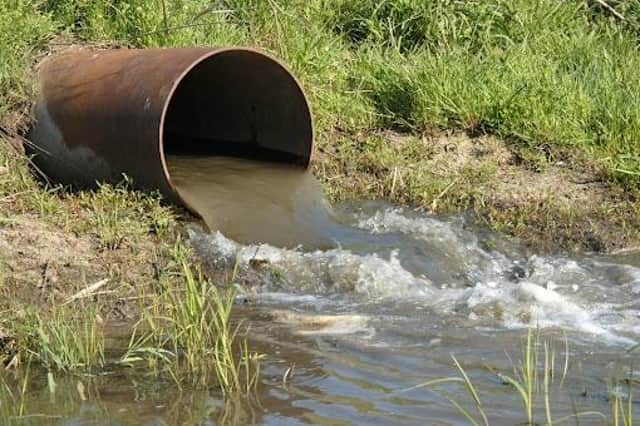Update - 'Raw sewage has been pumped into waterways near Banbury for thousands of hours' the Labour members reveal. MP comments on objections to her vote


Mrs Prentis voted against a proposal from the Lords in relation to the Environment Bill, currently on its way through Parliament, that would have placed legal duties on the companies to reduce discharges. The legislation was defeated by 265 MPs’ votes to 202.
This evening Mrs Prentis has responded to the Labour Party's challenge. She said she had not voted to allow water companies to pump sewage into rivers as some campaigns have caricatured. She said the Conservative government was the first to set out expectations that water companies take steps to significantly reduce storm overflows which the government will put on an 'enhanced legal footing'.
Advertisement
Advertisement
Leader of the Banbury & Bicester Labour Party, Cllr Sean Woodcock said new analysis of Rivers Trust research reveals the 'sickening level' of raw sewage pumped into local waterways.


The figures come as pressure is increased on the government to drop opposition to a ban on the deliberate pumping of raw sewage into rivers and by beaches. Mr Woodcock called their opposition 'sickening'.
He said: "As COP26 begins in Glasgow, the Conservatives have failed to set out any meaningful way forward after they whipped their MPs to oppose a ban in the Commons last week. Leading campaigner Feargal Sharkey has been clear that Government statements so far ‘[do] not even come remotely close’ to what is required.
The legislation is expected to return to the Commons next Monday, November 8.
The figures include:
Advertisement
Advertisement
· Shutford Sewage Treatment Works spilled 114 times for a total of 1530 hours.
· Bloxham Sewage Treatment Works spilled 119 times for a total of 2323 hours.
· Bicester spilled 117 times for a total of 1236 hours.
Across Banbury & Bicester Constituency there have been 829 of spills lasting 9,769 hours last year alone, Mr Woodcock said. “These figures are utterly revolting. Raw sewage is being pumped into local waterways for the equivalent of hours every single day. This has to stop, it’s bad for the environment, it’s bad for local families, and frankly it’s utterly disgusting," he said.
“People in Banbury & Bicester will find it utterly astonishing that Victoria Prentis has voted against a ban on pumping raw sewage into our waterways.
Advertisement
Advertisement
“After eleven years in power this is the state the Conservatives have left us in. Britain is better than this. It’s time for a change.”
In a statement this evening, Mrs Prentis said: “This Conservative government is the first government to set out our expectation that water companies must take steps to significantly reduce storm overflows. We will now put that instruction on an enhanced legal footing.
"The amount of sewage discharge by water companies into our rivers is not acceptable. We have made it crystal clear to water companies that they must significantly reduce sewage discharges from storm overflows as a priority. If we do not start to see significant improvements, we will not hesitate to take action through a swathe of new measures directly on water companies in the Environment Bill.
"I did not vote to allow water companies to pump sewage into our rivers as some campaigns have caricatured in recent days," she said.
Advertisement
Advertisement
"I voted in favour of a package of measures to reduce harms from storm overflows including: a new duty on government to produce a statutory plan to reduce discharges from storm overflows, as well as a new duty directly on water companies to produce comprehensive statutory drainage and sewerage management plans. Water companies will also be required to monitor water quality upstream and downstream of storm overflows, and publish near real time information on their operation.
"The reasons why we were unable to accept the Duke of Wellington’s well-intentioned amendment still stand. The complete elimination of discharges from storm overflows would be extremely challenging. Initial assessments suggest that total elimination would cost anywhere from £150 billion to £600 billion.
"This process could involve the complete separation of sewerage systems, leading to potentially significant disruption for homes, businesses and infrastructure across the country. Customer bill increases, potentially amounting to many hundreds of pounds, and other trade-offs against other water industry priorities would be unavoidable. We need to understand what such trade-offs might be.”